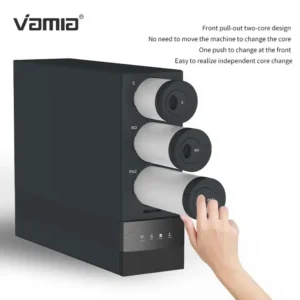Common Myths About Water Purifiers, Debunked One by One
Misinformation about water purifiers creates confusion for consumers, but separating fact from fiction reveals the true
benefits and limitations of these systems.
benefits and limitations of these systems.
Myth 1: Purified water removes all beneficial minerals, making it unhealthy. Fact: While some systems reduce mineral
content, the human body obtains essential minerals primarily from food, not water. Health authorities confirm that drinking
demineralized water poses no significant risks, and many people prefer its taste.

content, the human body obtains essential minerals primarily from food, not water. Health authorities confirm that drinking
demineralized water poses no significant risks, and many people prefer its taste.

Myth 2: Boiling water is as effective as purifiers. Fact: Boiling kills bacteria but doesn’t remove chemicals, heavy metals,
or sediment. Purifiers address a broader range of contaminants, providing safer water than boiling alone, especially in
or sediment. Purifiers address a broader range of contaminants, providing safer water than boiling alone, especially in
areas with chemical pollution.


Myth 3: All purifiers work the same. Fact: Technologies vary dramatically—carbon filters target chemicals, reverse osmosis
removes dissolved solids, and UV systems handle microbes. No single system addresses all contaminants, making proper
selection critical based on local water quality.
removes dissolved solids, and UV systems handle microbes. No single system addresses all contaminants, making proper
selection critical based on local water quality.
Myth 4: Purifiers waste more water than they save. Fact: While reverse osmosis systems produce wastewater, modern
models have improved efficiency, and the water saved by reducing bottled water use far outweighs this. Other technologies
like carbon filters use no extra water at all.
models have improved efficiency, and the water saved by reducing bottled water use far outweighs this. Other technologies
like carbon filters use no extra water at all.
Myth 5: Once installed, purifiers require no maintenance. Fact: Filters need regular replacement to function effectively.
Neglected systems can become breeding grounds for bacteria, emphasizing the importance of following maintenance
schedules.
Water Purifier Factory, Water Purifier For Home, Water Purifier Machine,Water Purifier, Water Filter Purifier System
Neglected systems can become breeding grounds for bacteria, emphasizing the importance of following maintenance
schedules.
Water Purifier Factory, Water Purifier For Home, Water Purifier Machine,Water Purifier, Water Filter Purifier System
Myth 6: Purified water tastes flat or unpleasant. Fact: Taste is subjective, but most users find purified water fresher, as
contaminants like chlorine and sulfur are removed. Any initial adjustment to reduced mineral taste typically fades quickly.
By dispelling these myths, consumers can make informed decisions, recognizing that while purifiers aren’t universally
identical or maintenance-free, they provide valuable protection when selected and maintained appropriately.
Common Myths About Water Purifiers, Debunked One by One
identical or maintenance-free, they provide valuable protection when selected and maintained appropriately.
Common Myths About Water Purifiers, Debunked One by One

